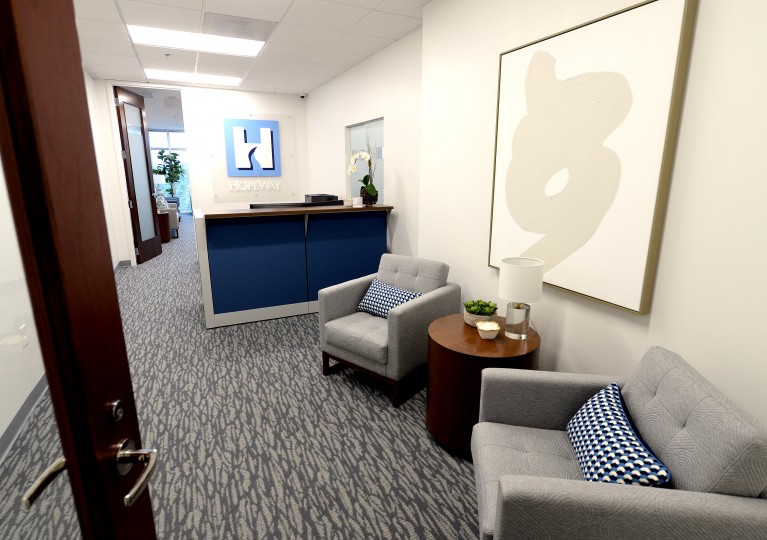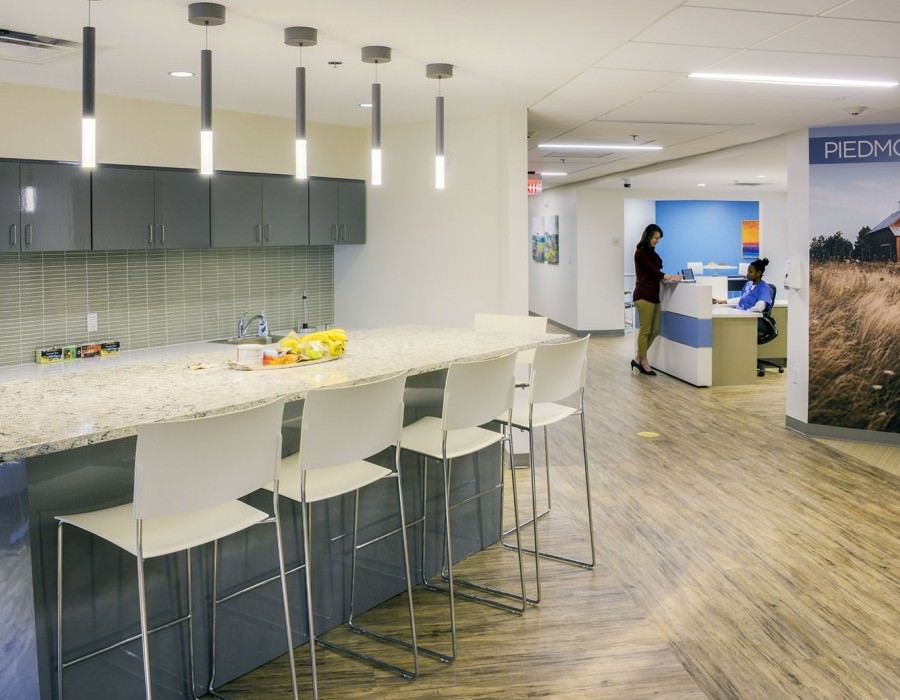Mental Health Treatment Facility in NC
Table Of Content

Individuals in the residential and partial hospitalization programs meet with their therapist and psychiatrist once a week for one-on-one sessions. One of HopeWay's values is excellence which is showcased through our expert and compassionate staff, our beautiful, therapeutic facilities and our commitment to evidence-based, individualized treatment. Our proven model of care incorporates individual and group therapy, integrative therapies, psychiatric leadership and a focus on the whole-person. HopeWay offers specialized Veterans mental health treatment through our Residential, Partial Hospitalization and Intensive Outpatient Programs. We have a specific Intensive Outpatient Program for Veterans & First Responders. CHARLOTTE — A local mental health treatment center is expanding.
Explore Our Programs
46% of clients from Residential or PHP transitioned to another level of care. Whether you are thinking about becoming a client, or you know someone who would benefit from our services, our admissions team can assist with questions about our programs and admission criteria. After she was released, she received very little in the way of post-acute care, revealing an enormous gap in the system. When people suffering from mental illness have to be hospitalized, they almost always just go home afterward, which places a huge burden on them and their families. Essentially, the hospital just released her and wished her luck. Additionally, learn more about our Partial Hospitalization and Intensive Outpatient programs.
Popular Articles
The project is expected to deliver in the fourth quarter of this year. Clients who have resided on our unit describe a safe living space, with continuous staff support and guidance. Clients express that the residential unit provides a community-based experience in which they can learn and practice healthy living skills with others while feeling safe and supported. The 18,000+ square foot space is designed to support healing and recovery. Every detail is intentional creating a safe and supportive environment for the clients.
HopeWay center names Daniel Brown chief executive officer - Charlotte Observer
HopeWay center names Daniel Brown chief executive officer.
Posted: Fri, 20 Nov 2015 08:00:00 GMT [source]
LifeStance Therapists & Psychiatrists
I was considering a future for the first time in a very long time. Meet Kim, and learn her Story of Hope and the sense of community and belonging that HopeWay has provided on her path to healing. 94% of clients surveyed would recommend HopeWay to someone they care about. Studies show 90% of all people who receive best-practice care demonstrate a reduction in symptoms and improved productivity. HopeWay offered me the beautiful gift to remove myself from chaos and busyness which in turn allowed me space to gain deeper self-awareness and the confidence to ask for what I need and take steps toward self-care. Follow along on Elizabeth's journey through HopeWay, and learn how CBT and DBT therapy allowed her to overcome her anxiety and depression.
Our Programs
Prior to HopeWay, life was happening around me but today I am grateful to be alive, as now I am the leading role in my own amazing story. HopeWay serves adults, teens and Veterans across several different levels of psychiatric care. Bill Blue doesn’t want to provide many details about his family member whose illness pushed him and his wife to found HopeWay. He allows that the woman first experienced a severe mood disorder episode in summer 2006. She suffered through another episode five years later and was hospitalized.
Types of Therapy
Through the various treatment modalities offered at HopeWay, clients learn the skills and tools they need to appropriately manage their mental health after discharge. We often hear from previous clients that their “HopeWay tool box” is a central part of their continued recovery and healing. HopeWay is committed to excellence, and through our relationship with UNC Chapel Hill’s School of Medicine, we have seen that our model of care works. Our outcome data shows clinically significant reductions in anxiety and depressive symptoms and clinically significant improvement in overall functioning. HopeWay maintains The Joint Commission’s National Gold Seal of Approval and is also certified as a Behavioral Health Home because of the integrated care model.

Integrative therapies provide opportunities to practice life skills that directly translate into everyday activities that can be done outside of treatment. Useful life skills such as gardening, exercise, music, cooking/nutrition and art offer methods of expression that resonate differently than traditional “talk” therapy. Clients are actively involved in their treatment plans and goals.

“Let me say, as somebody trying to get reporters interested in mental health for many years, this is not something people like talking about,” Grano says. Because stories are about people, and it’s hard for people to share mental illness because it’s so surrounded by stigma.” The other two nod emphatically. Local mental health nonprofit HopeWay is expanding its services with a new facility at Oakhurst Commons in east Charlotte. We address core issues, using evidence-based, best practices to help clients set a course towards hope and healing.
The lobby is decorated with glasswork from North Carolina artist Kenny Pieper, and an aquarium. The building has multiple meeting rooms, classrooms, a library, and a working kitchen, where clients can learn to cook and, in the process, improve their diets and social skills. The place has 36 private rooms for residential stays and room for 50 more day clients—adults only. Revenue from the endowment, coupled with annual giving, will contribute more than $1 million to help pay for what clients’ insurance plans won’t cover.
Sunlight falls on the work tables, sketchbooks, and pens in baskets. Our wooded campus is located in South Charlotte and offers residents state-of-the-art facilities to utilize during their stay. On the unit, individuals have access to relaxation areas, a game room, fire pit, and group spaces.
Learn how Mack, a previous client here at HopeWay, regained his confidence and self love after overcoming major depressive disorder and anxiety. Private donors ended up contributing $27 million—including $2.5 million from Novant Health and $2 million from Carolinas HealthCare System—to support purchasing property and other start-up costs. A Realtor friend of Bill’s tipped him off to a 12.5-acre plot of land off Sharon Road West and a 52,700-square-foot former school building. The freshly established HopeWay Foundation bought the property and building last year for $5.5 million, part of which was raised through tax-free bonds. By using this website, you accept the terms of our Visitor Agreement and Privacy Policy, and understand your options regarding Ad Choices. HopeWay supports diversity, equity, and inclusion regardless of race, ethnicity, religion, sexual orientation, gender, age, or disability.
We provide specialized treatment for Veterans & First Responders living with PTSD and related mental health conditions through our residential, partial hospitalization and intensive outpatient programs. HopeWay now offers mental health treatment for teens and eating disorder treatment for teens and young adults built on our proven model of care. HopeWay’s main campus is located at 1717 Sharon Road W. The Charlotte-based, Joint Commission-accredited mental health treatment center for adults serves clients in North Carolina and nationwide.
Comments
Post a Comment